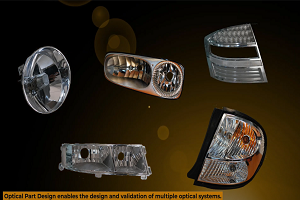How to build a Fluent UDF library by command line on Windows using the Clang compiler provided with Fluent?
-
-
March 17, 2023 at 8:59 am
 FAQParticipant
FAQParticipantSince release 2021R1, it is possible to compile a Fluent UDF (test.c test.h) using the provided Clang compiler by command line, following the different steps bellow: 1) if needed, create appropriate environment variables (can be also included in user.txt file -see step 5): FLUENT_INC=C:Program FilesANSYS_Incv211fluent FLUENT_ARCH=win64 FLUENT_UDF_CLANG=builtin FLUENT_UDF_COMPILER=MSVC 2) create your UDF library directory (LIBUDF for example) and the following sub directories: LIBUDF src win64 3ddp_host 3ddp_node 3d_host 3d_node See also the documentation here for more details on the directory’s structure: https://ansyshelp.ansys.com/account/secured?returnurl=/Views/Secured/corp/v211/en/flu_udf/flu_udf_compile_directory.html 3) Copy your UDF files test.c and test.h in the src directory 4) For each subdirectory LIBUDF/win64/3ddp_host, copy/paste the file sconstruct.udf located in the directory C:Program FilesANSYS Incv211fluentfluent21.1.0srcudf and rename it : sconstruct 5) For each subdirectory LIBUDF/win64/3ddp_host, create a file user.txt composed of the following lines (example here for 3ddp_host): VERSION=’3ddp_host’ FLUENT_ARCH=’win64′ FLUENT_RELEASE=’fluent21.1.0′ CSOURCES=’ $(SRC)test.c’ HSOURCES=’$(SRC)test.h’ GPU_SUPPORT=’off’ 6) Inside each subdirectory LIBUDF/win64/3ddp_host (for each version), in order to compile your UDF, execute the command line : scons
-


Introducing Ansys Electronics Desktop on Ansys Cloud
The Watch & Learn video article provides an overview of cloud computing from Electronics Desktop and details the product licenses and subscriptions to ANSYS Cloud Service that are...

How to Create a Reflector for a Center High-Mounted Stop Lamp (CHMSL)
This video article demonstrates how to create a reflector for a center high-mounted stop lamp. Optical Part design in Ansys SPEOS enables the design and validation of multiple...

Introducing the GEKO Turbulence Model in Ansys Fluent
The GEKO (GEneralized K-Omega) turbulence model offers a flexible, robust, general-purpose approach to RANS turbulence modeling. Introducing 2 videos: Part 1 provides background information on the model and a...

Postprocessing on Ansys EnSight
This video demonstrates exporting data from Fluent in EnSight Case Gold format, and it reviews the basic postprocessing capabilities of EnSight.

- How to overcome the model information incompatible with incoming mesh error?
- Skewness in ANSYS Meshing
- What are the requirements for an axisymmetric analysis?
- Is there a way to get the volume of a register using expression ?
- Ansys Fluent GPU Solver FAQs
- How to create and execute a FLUENT journal file?
- What are pressure-based solver vs. density-based solver in FLUENT?
- What is a .wbpz file and how can I use it?
- How to get information about mesh cell count and cell types in Fluent?
- How can I Export and import boxes / Systems from one Workbench Project to another?

© 2025 Copyright ANSYS, Inc. All rights reserved.

